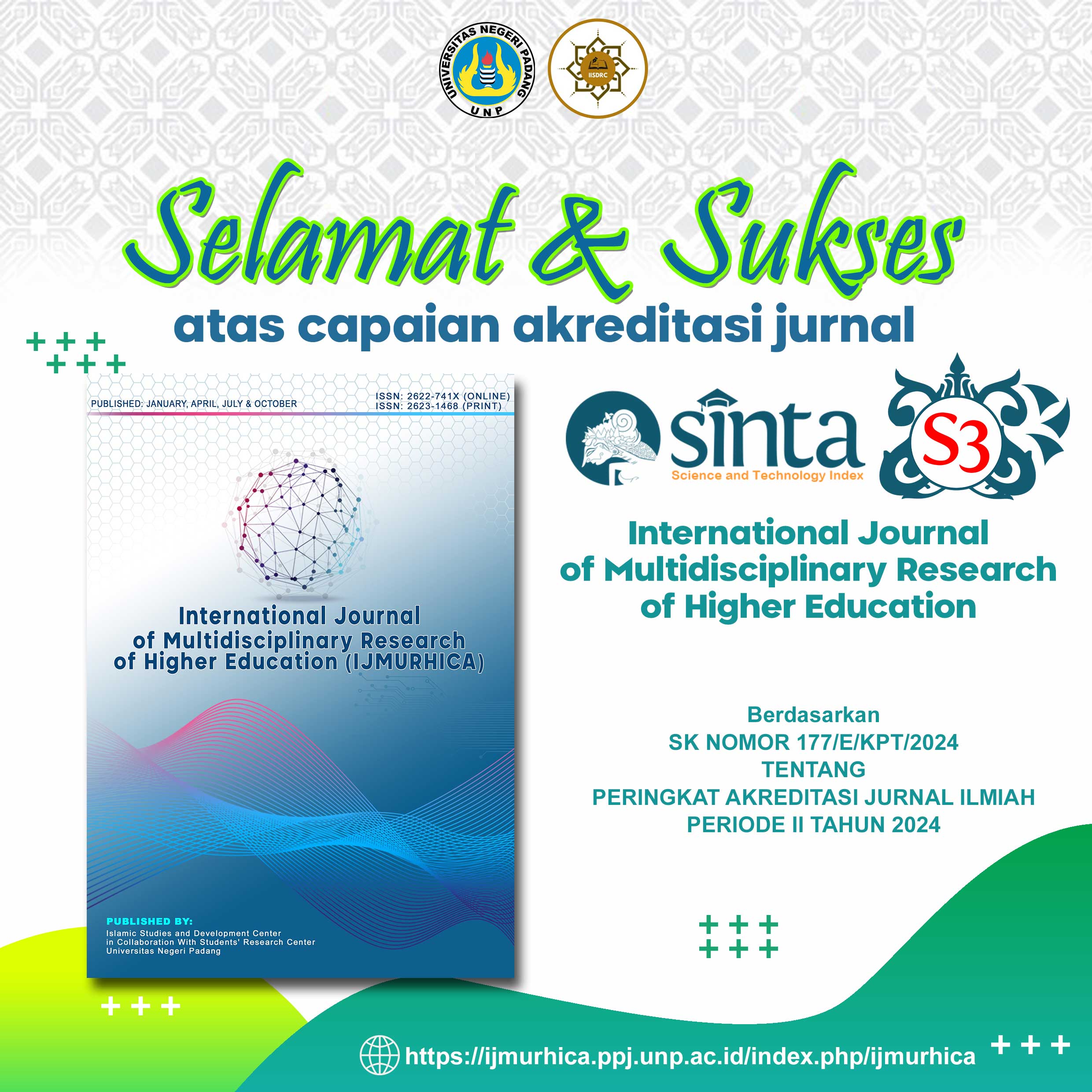Problems of Santri in Memorizing the Qur’an at the Khalid Bin Walid Islamic Boarding School
DOI:
https://doi.org/10.24036/ijmurhica.v4i1.150Keywords:
Problematics, Santri, TahfidzAbstract
Memorizing the Qur’an is a very big miracle. Because the Qur’an is the holy book of Muslims, in order to protect the Qur’an, apart from reading and understanding the Qur’an, we are also ordered to memorize the Qur’an. This study aims to analyze the actual problems of students in memorizing the Qur’an and provide solutions to these problems. This research uses a qualitative method with a case study approach. Data sources are taken from two informants through in-depth interviews selected using the technique of purposive sampling, all informants were active teachers who chose the profession of catfish teacher education at the Khalid bin Walid Islamic boarding school. All interview results were then analyzed thematically using Miles and Hubermen's analytical techniques. The results of the analysis show that there are six problems for students in memorizing the Qur’an, namely; i) not serious about memorizing, ii) the target of memorization is not completed, iii) lack of motivation of students in memorizing, vi) santri cannot read the Qur’an properly, v) cannot manage time, vi) each student has different abilities. The results of this study can be a solution for prospective students and used as initial data for future researchers in studying this problem in different contexts and issues.






